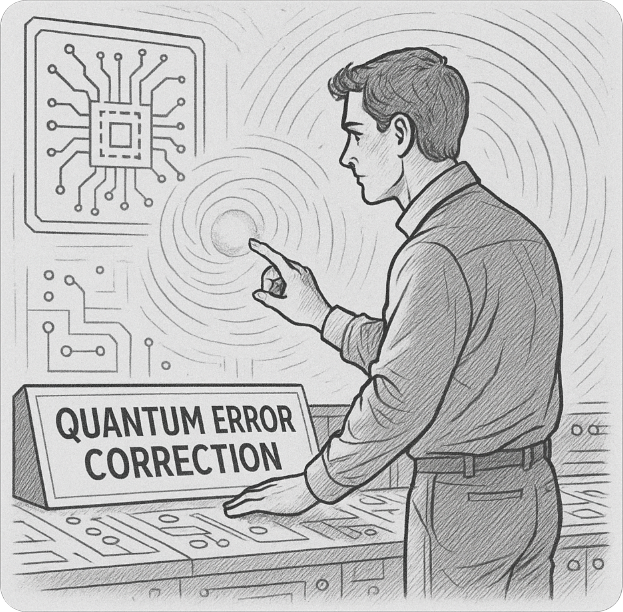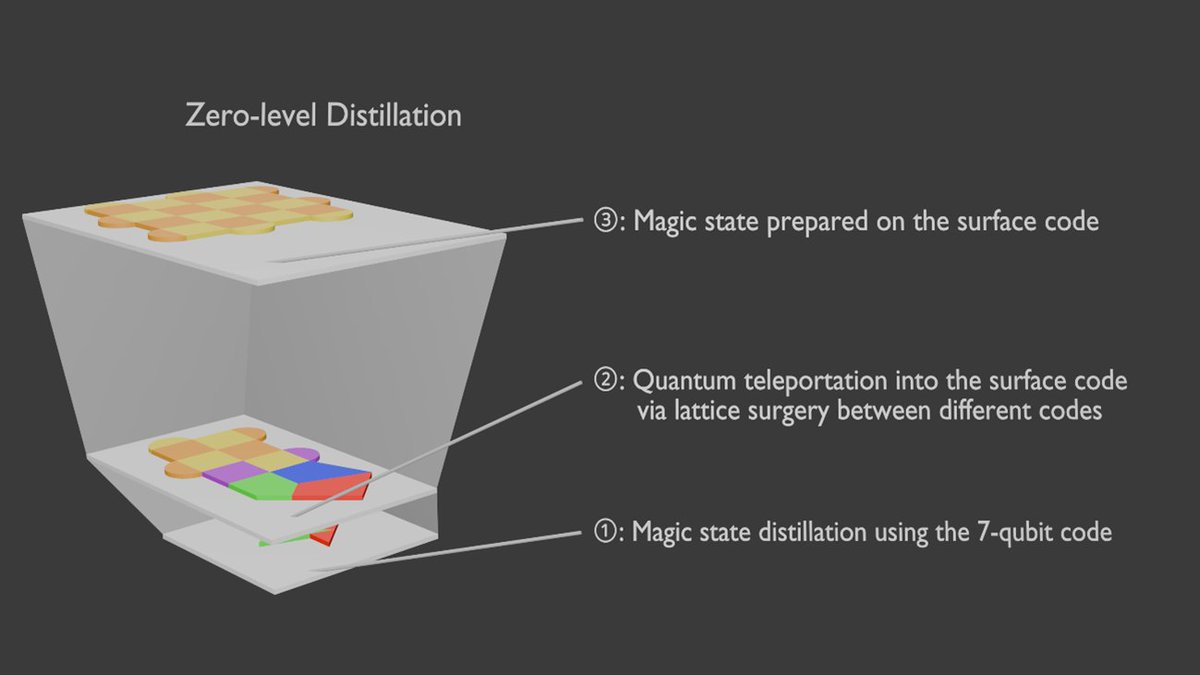🧠 Quantum computing's noise problem got a "magical" fix last month. Researchers at @UOsaka_en found a way to correct quantum errors far more efficiently, with about 30x less overhead and fewer qubits needed. Let's break down why this is huge news 👇🏻 

⚛️ Quantum computers are super powerful, but also super sensitive. Even a tiny disturbancea stray photon or a slight temperature change can mess them up. Quantum error correction is the hero here, like noise-cancelling headphones for qubits, fighting off the noise.
✨ One tool in the error-correction toolkit is something awesomely named "magic state distillation". It takes a bunch of noisy quantum states and turns them into one super-clean magic state. Think combining many blurry photos to get one clear image.
🪄 Why magic? Because these states let quantum computers do special error-tolerant computations that otherwise are impractical. But the catch: distilling magic states is hard. It typically demands many extra qubits and operations, which is expensive in quantum terms.
🛠️ This is where the Osaka University breakthrough comes in. They developed what they call zero-level distillation. Instead of doing the cleanup at a higher logical layer, they built an error-correcting circuit right at the physical qubit level. This kind of optimization matters not just for pure science but also for applied fields like cryptography, where quantum performance could reinforce or eventually challenge blockchain-based systems.
🏗️ In simple terms, they tackled the errors at the ground floor instead of the penthouse. And it paid off big time. This method needs far fewer qubits and cuts the extra computational overhead by about 30x compared to the old approach.
📊 To visualize that, here’s a real comparison. Traditional magic state distillation can need ~800 qubits over 18 cycles. Osaka’s zero-level method gets it done with just 75 qubits over 9 cycles. Huge difference.

🔌 We might not need room-sized quantum machines with millions of qubits anymore. A more modest setup could do the trick. This breakthrough could speed up the timeline for quantum computers to tackle real-world problems by years. 

🌍 It’s not just about speed. With more efficient error correction, quantum computing becomes more accessible. Industries like finance, biotech, logistics, blockchain, and materials science could soon benefit from quantum solutions. Think faster drug discovery, optimized supply chains, quantum-secure smart contracts, and next-gen cryptographic tools.
🔐 The crypto world should pay attention too. While quantum computers capable of breaking modern encryption aren't here yet, breakthroughs like this bring us closer. It's not about fear, it's about preparation. This is a call to advance post-quantum cryptography and explore quantum-resilient blockchain infrastructure.
• • •
Missing some Tweet in this thread? You can try to
force a refresh




